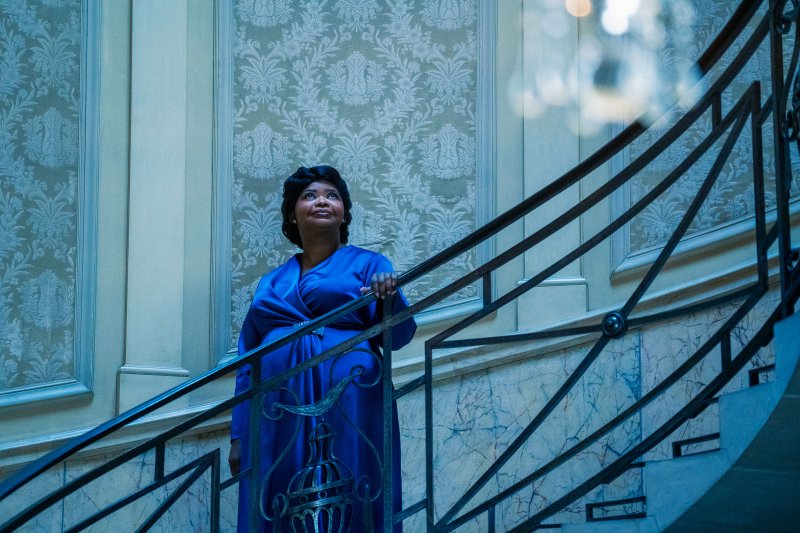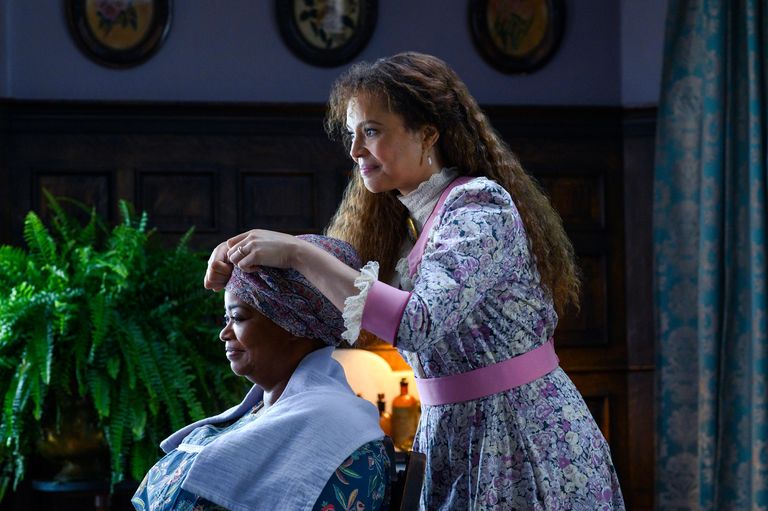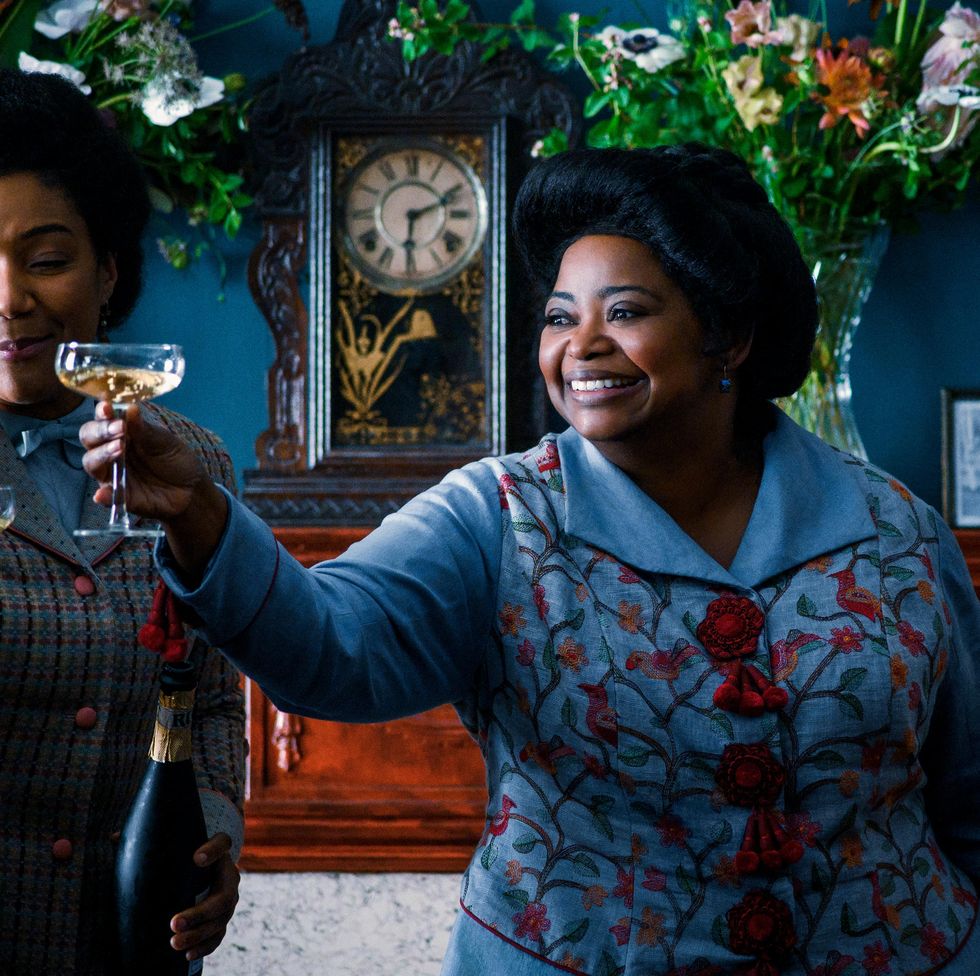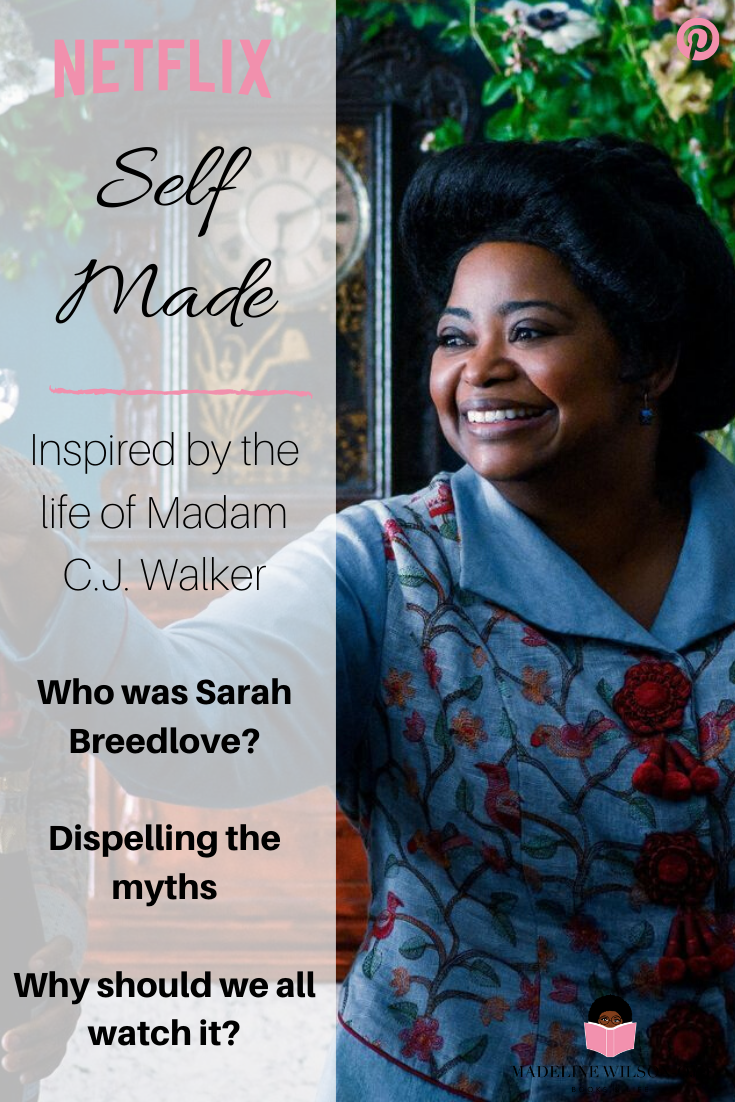
We’re officially on #lockdown now, which means more time on our hands for leisure activities. Reading, cooking, home workouts and especially eating will feature multiple times on our agenda in the weeks ahead, if it hasn’t already. With self-isolation and quarantining being all but mandatory lately, it’s no wonder we all collectively anticipated and binge-watched Netflix’s newest mini-series inspired by the life of Madam C.J. Walker.
Just like many productions that have gone ahead before it, Self Made, which landed in these Netflix streets on the 20th March sparked a lot of online debate. Whilst many were thrilled to see Netflix pay homage to one of black America’s most iconic women, there was also an equal number who were averse to the inaccuracies of the story.
So for those who haven’t watched the series yet, here is a quick recap: Self Made is a four-part dramatisation based on the true-life Sarah Breedlove aka Madam C.J. Walker. It’s taken from the biography written by her great-great-granddaughter A’Lelia Bundles.

Sarah Breedlove (Octavia Spencer) is a laundrywoman suffering from a condition causing her hair to fall out. One day, Addie (Carmen Ejogo) a hair care saleswoman knocks at her door, offering to treat her hair condition in return for Sarah’s laundry services. Over time, the women seemingly develop a relationship of sorts, and Sarah eventually recovers from her scalp condition.
The women eventually fall out when Addie turns down Sarah’s offer to be her salesgirl, claiming she doesn’t want a woman who looks like Sarah fronting her brand. Despite Addie’s refusal, Sarah sneakily steals a few tins of Addie’s hair pomade and ends up making a killing from selling them . When Sarah realises she has the business fortitude to sell the product on her own, she embarks on her own business journey, working day and night to replicate Addie’s formula. Eventually, she moves from Louisiana to Indianapolis with her husband (Blair Underwood) and daughter (Tiffany Haddish) to expand her business.
What follows after that is constant rivalry between the newly rebranded Madam C.J. Walker, and Addie (who ends up tailing her to Indianapolis), the continued struggle and expansion of her brand, and a troubled marriage between the Walkers. (Honestly, watch it to understand).
Well, I had thoughts concerning the movie itself AND Madam CJ Walker vs Annie Malone (in the movie, Addie Munroe).
The movie was good as far as the storyline but kind of fell flat in certain places. While I want T. Haddish to win, I had a hard time connecting with her in this…
— 👑🐝 BEY Ye Also Petty 👑🐝 (@Only1Shana_MUA) March 23, 2020
Madam C.J. Walker in twelve facts
Before I get into the review, here are a few facts about Sarah Breedlove, aka the real Madam C.J. Walker
- Sarah Breedlove was born on the 23rd December 1867 in Louisiana
- She was first married to Moses McWilliams, and later Charles Joseph Walker
- She later marketed herself as Madam C.J. Walker when she went into business
- Her daughter A’Leila was a product of her first marriage to Mr. McWilliams
- Sarah Breedlove suffered from major hair loss and severe dandruff prior to using Annie Malone’s hair pomade
- Before becoming a businesswoman, she was a washerwoman
- Madam C.J. Walker was also a philanthropist and socio-political activist
- She moved to Denver to expand her career as a hair care saleswoman
- She later became a hair ‘culturist’ in her own right, developing her own line of hair care products and opening her own salons
- She empowered other black women by teaching them how to care for their own hair with her products and giving them the tools to become financially independent as hair care saleswomen
- She was the first self-made millionaire
- She died on 25th May (my birthday) in New York from kidney failure.

Self Made, Dispelling the myths
So now we have the facts, and Self Made for the large part, did a good job of capturing the essence of Madam C.J. Walker. But, it also perpetuated many myths. So let’s bust a few.
Myth 1 | Annie Malone was a mulatto. It is true, that in the early 1900s, colourism was prevalent across America. Yes, lighter-skinned women were deemed more desirable than their darker counterparts, and generally enjoyed relatively more social capital because of their ‘eurocentric’ features. This created tension between light and dark skin black women (whether that has changed much today is up to you to judge). However, this was not a feature of Annie’s and Sarah’s relationship. Annie was not a mulatto (a mixed woman), but a dark skin woman.
Myth 2 | Madam C.J. Walker moved to Indianapolis. No, no, no! She actually moved to Denver, in Colorado where she continued to sell Annie Malone’s hair products. Again, this is contrary to the series’ portrayal which showed her moving to Indianapolis to get away from Addie (Madam C.J. Walker’s nemesis in Self Made). In fact, it’s worth mentioning here that although the women’s competition was a significant feature of the series, this was not actually true initially. Madam C.J. Walker moved to Denver to sell Annie’s products, and not to compete with her, although Annie did eventually accuse Madam of replicating her recipe.

Myth 3 | A’Lelia was a lesbian who settled with a woman. Listen, I don’t know who A’Lelia might have been sleeping with in secret, but what I do know is that she actually married three times in her lifetime, and never publicly came out as gay. The film correctly portrays her first marriage to John Robinson, but the notion that she went on to have open affairs with women, and that Madam C.J. Walker accepted that her daughter was unable to produce an heir as a result of this, is false.
Myth 4 | Charles Walker was unable to keep up. Self Made portrays Charles Walker as a weak man with no business acumen who was unequal to Madam C.J. Walker. In fact, there are many scenes that show Madam dismissing her husband and talking down on him. But think about it. Which woman in her right mind would change her name to mirror her husband’s if she didn’t respect him? Hmm, I didn’t think so. In fact, Charles Walker was a respected newspaper advertising specialist who offered her advertising and marketing advice. Unlike in Self Made, he travelled up and down the country with her to expand the business.
I’m ready to talk about the Madam CJ Walker series whenever y’all are. I took NOTES. pic.twitter.com/BMd24qYW7G
— Put me in C (@ajvthegreat) March 22, 2020
So now we’ve sorted fiction from fact, here is my review.
As a film, Self Made is fantastic. If you can get out of your head that it is a work of entertainment, and not education then you’ll probably agree that it’s an enthralling mini-series. The four-part format, I felt suited very much because it allowed us to delve into the main character’s story, as well as fully appreciate the main themes of the film (women’s empowerment, misogynoir, love, beauty, business and betrayal).
You may also want to read: Film Review | Side Chic Gang
Any film, whether fact or fiction, which portrays black women, especially dark skin plus-sized women being industrious, believing in their beauty and supporting other women has my vote. Period. We don’t get to see that often so it was a real gem. It was beautiful to see Madam’s tresses grow longer and thicker throughout the series.
Octavia Spencer (who I first saw in Big Mamma’s House, and have seen in plenty of films after that) is a formidable actress. Her portrayal of Madam C.J. Walker was believable, as was Blair Underwood’s portrayal of C.J.
Tiffany Haddish on the other hand, I felt was a horrible casting option for Lelia. Whilst watching her, I just couldn’t get out of my head that I was watching Tiffany and in fact, she only reminded me of her character in Girl’s Trip.
I think the pace of the drama was good. It was enough to keep me interested but without being over the top. Having said that, I hated the soundtrack. Let me explain. The songs on their own were good, but they were more suited to a contemporary Spike Lee production rather than a period drama portraying life in the early 1900s.
Lastly, the constant pitting of Madam C.J. versus Addie, dark skin versus light skin, thick versus slim was annoying. I didn’t mind it so much in the actual drama, but the boxing ring scenes were patronising and just punctuated the production in a way that just wasn’t needed.
Phew!
Although I have complained a lot, I really did enjoy Self Made. In fact, I binged the first three parts on Friday night, then woke up early Saturday morning to watch the last. I’d definitely recommend it. Let me know whether you’ve watched it, if there were other inconsistencies you noticed in the story, and what you thought about it in its entirety.

